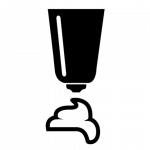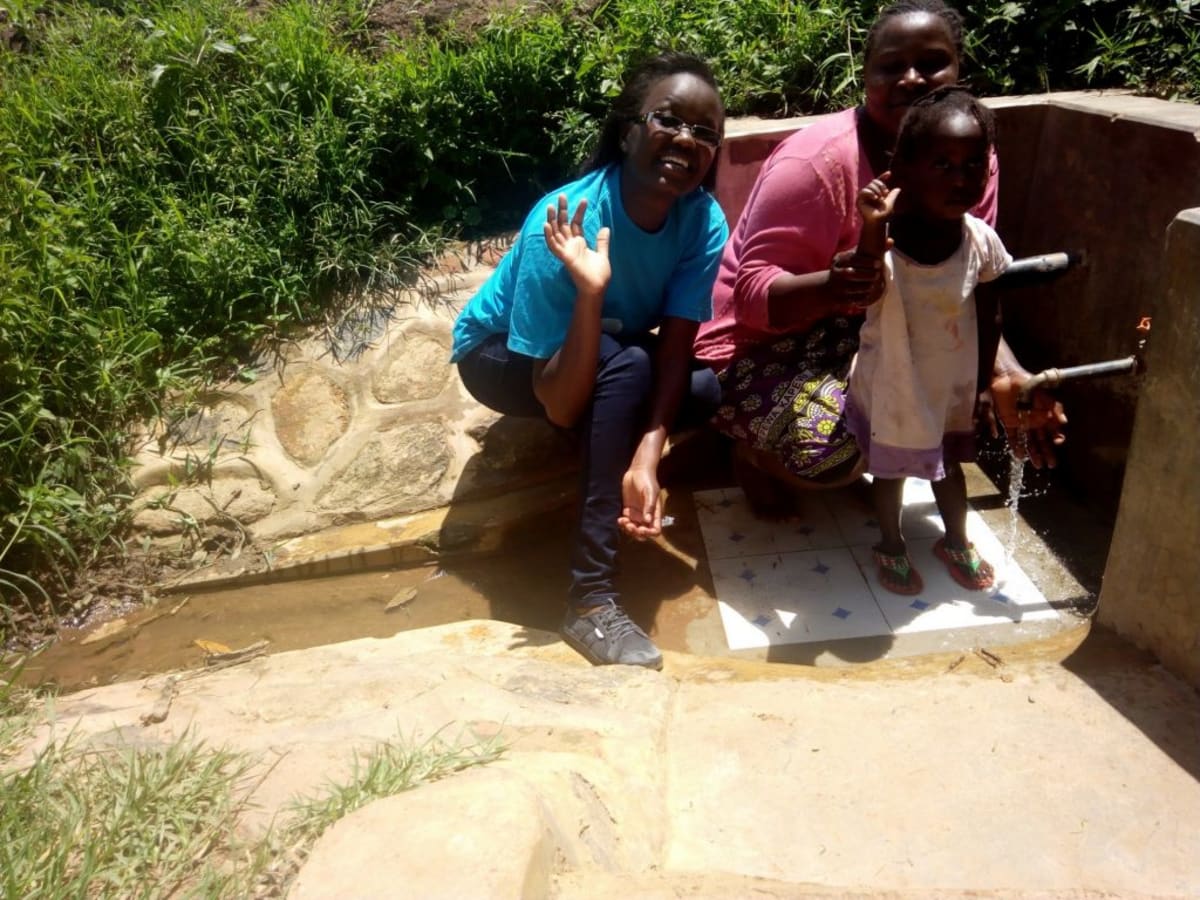This project is a part of our shared program with Western Water and Sanitation Forum (WEWASAFO). Our team is pleased to directly share the below report (edited for clarity, as needed).
Welcome to the Community
A normal day in Kakubudu Community starts at 5 am. This is when most men here get up and onto their motorbikes to search for customers. They earn money by taxiing others to and fro. The women wake up at 6 am to prepare the children for school, then they start their daily household chores. After these, most women go out looking for casual work such as washing clothes and doing other people's farm work. They return at 12 pm to prepare lunch for the entire family, because even the children are sent home from school for an hour. The women must then go out again to fetch water and firewood to prepare supper.
We learned about Kakubudu Community and its clean water scarcity through the students and teachers at Kakubudu Primary School, where we're helping students get clean water (click here to see). A project at this school will only have its full impact on students if they have clean water at home, too - so they directed us here to see Fred Lagueni Spring.
Water Situation
One of the main water sources in Kakubudu is Fred Lagueni Spring. It is in a bushy area that attracts a lot of insects, many of which can be seen in the water. The more people who use the spring, the dirtier the water becomes - the bottom is stirred up as people repeatedly dip their containers. The spring is especially dirty during the rainy season when rainwater washes feces, farming chemicals, and dirt into the water.
Community members are using Fred Lagueni's water for all of their needs, including drinking. After drinking, there is constant typhoid and parasitic complications. Mr. Fred Makaka commented, "The health situation in this community is so poor with most people suffering from diseases such as typhoid and amoeba. The situation cannot be easily salvaged because most of this people are poor; seeking medical attention becomes expensive. Being a polygamous village, women suffer more because they are left to cater for their [huge] families on their own most of the time."
Sanitation Situation
Less than half of the households in Kakubudu have a pit latrine. While some people share sanitation facilities with their neighbors, others reportedly opt for open defecation; this was exposing the entire community to fecal-oral diseases. If latrines are old, dirty, or poorly built, using the bushes as a bathroom often seems the safer option. Most of the latrines are traditionally built using thatched sticks filled in with mud.
Only a few families have and use hand-washing stations, dish racks, and clotheslines. These are all easy to construct with local materials, so we plan to teach why and how to do so when training in Kakubudu.
Plans: Hygiene and Sanitation Training
Community members will attend hygiene and sanitation training for at least two days. This training will ensure participants are no longer ignorant about healthy practices and their importance. The facilitator plans to use PHAST (Participatory Hygiene and Sanitation Transformation), CLTS (Community-Led Total Sanitation), ABCD (Asset-Based Community Development), group discussions, handouts, and demonstrations at the spring. One of the most important topics we plan to cover is open defecation and its dangers, as well as having and using a pit latrine.
Training will also result in the formation of a committee that will oversee operations and maintenance at the spring. They will enforce proper behavior around the spring and delegate tasks that will help preserve the site, such as building a fence and digging proper drainage. The fence will keep out destructive animals, and the drainage will keep the area’s mosquito population at a minimum.
Plans: Sanitation Platforms
On the final day of training, participants will select five families that should benefit from new latrine floors.
Training will also inform the community and selected families on what they need to contribute to make this project a success. They must mobilize locally available materials, such as bricks, clean sand, hardcore, and ballast. The five families chosen for sanitation platforms must prepare by sinking a pit for the sanitation platforms to be placed over. All community members must work together to make sure that accommodations and food are always provided for the work teams.
Plans: Spring Protection
Fetching water is predominantly a female role, done by both women and young girls. Protecting the spring and offering training and support will therefore help empower the female members of the community by giving them more time and efforts to engage and invest in income-generating activities.
In addition, protecting the spring will ensure that the water is safe, adequate and secure. Construction will keep surface runoff and other contaminants out of the water.

 Protected Spring
Protected Spring
 Rehabilitation Project
Rehabilitation Project


















 - Handling water and food hygienically
- Handling water and food hygienically













